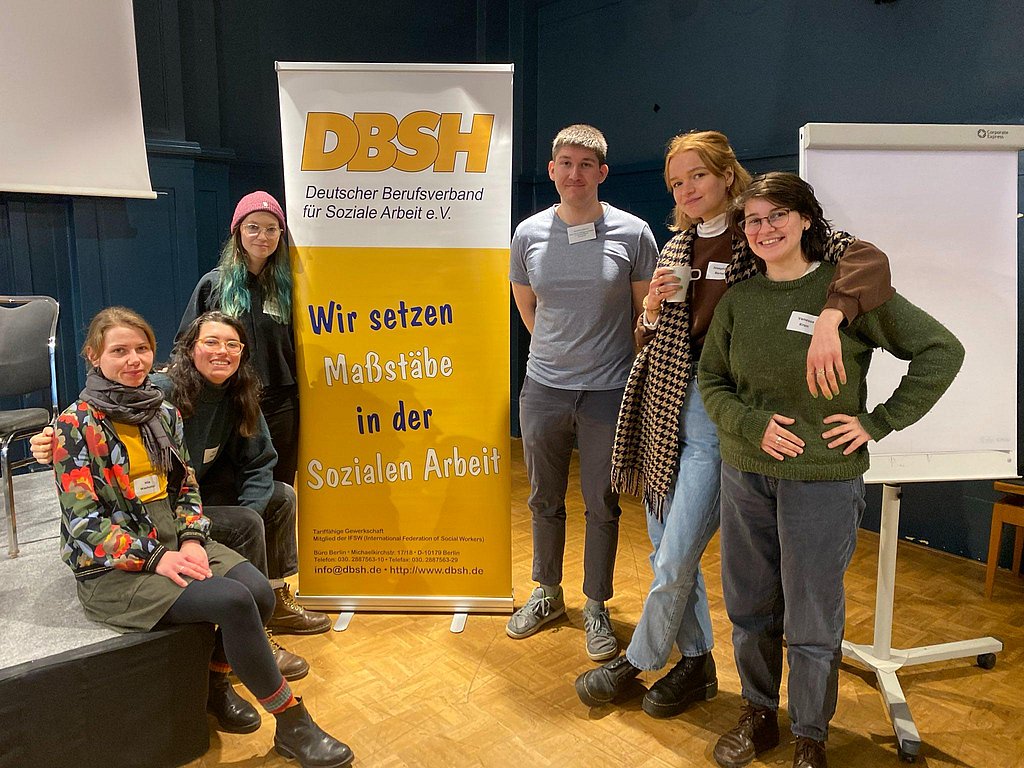On 27.01.2024, the symposium "Climate crisis and child endangerment" of the German Professional Association for Social Work e.V. (DBSH) took place in Berlin. The Sustainability Office of ASH Berlin and the student sustainability initiative trASHform took part.
The historic hall in the Refugio was well filled when the DBSH Berlin organization team opened the event. The aim of the symposium was to create an initial forum to discuss the effects of climate change on child welfare and child and youth welfare in Germany. Two exchange formats were on the agenda: a panel discussion in the morning and various workshops after the lunch break.
During the panel discussion, actors from the youth welfare office, Fridays for Future, social work science and medicine presented their perspectives on the climate crisis and child welfare. One of the ideas presented was that the climate crisis is a societal threat to children's welfare. It is not primarily the parents or institutions that are endangering the welfare of children, but the state's inadequate climate policy. This raises the questions of how the state's guardianship can be effective in this case and what role child and youth welfare services can play. The subsequent workshops delved deeper into, for example, climate change-related methods in social work and legal levers in child and youth welfare.
As the Sustainability Office and the student sustainability initiative at ASH Berlin, we took away two insights from the symposium:
Firstly, it became clear that climate change is relevant in practice. Numerous professionals from child and youth welfare facilities took part in the symposium. They reported on initiatives and projects and addressed needs that arise in their day-to-day work. We see this as a signal (also) for ASH Berlin to pay more attention to the issue of climate change in the training of future professionals. We also see the need to intensify scientific work on climate change in order to provide knowledge and concepts for child and youth welfare.
Secondly, the symposium provided a blueprint for a SAGE perspective on the link between the climate crisis and child welfare. Stakeholders from the fields of social work, health, education and upbringing looked at the topic together. This not only made it clear that all SAGE disciplines are affected. It also showed how beneficial it can be to look at the problem analysis and coping strategies through a common SAGE lens.



